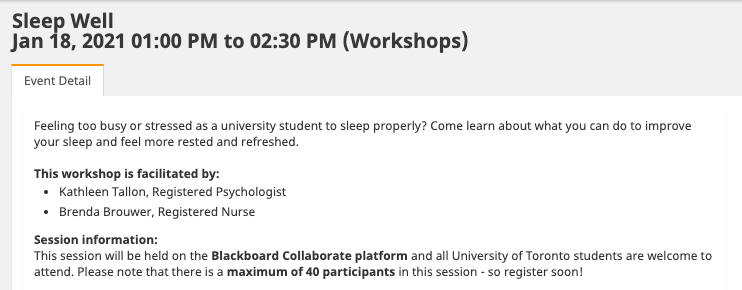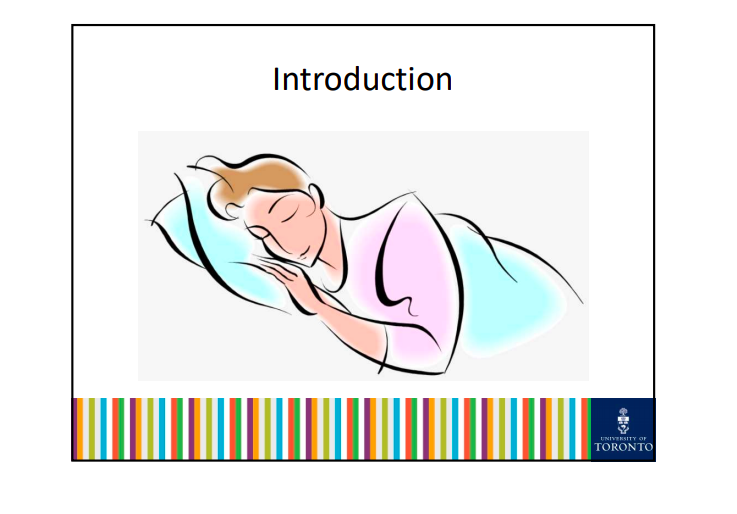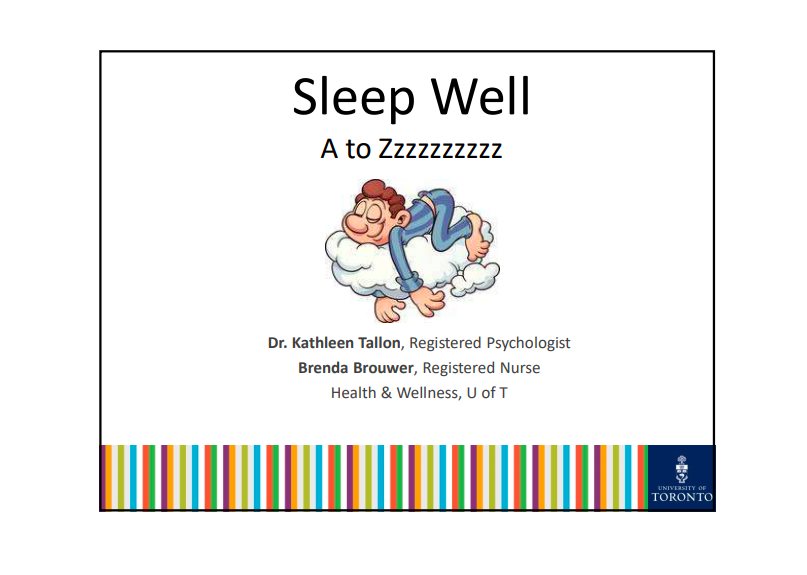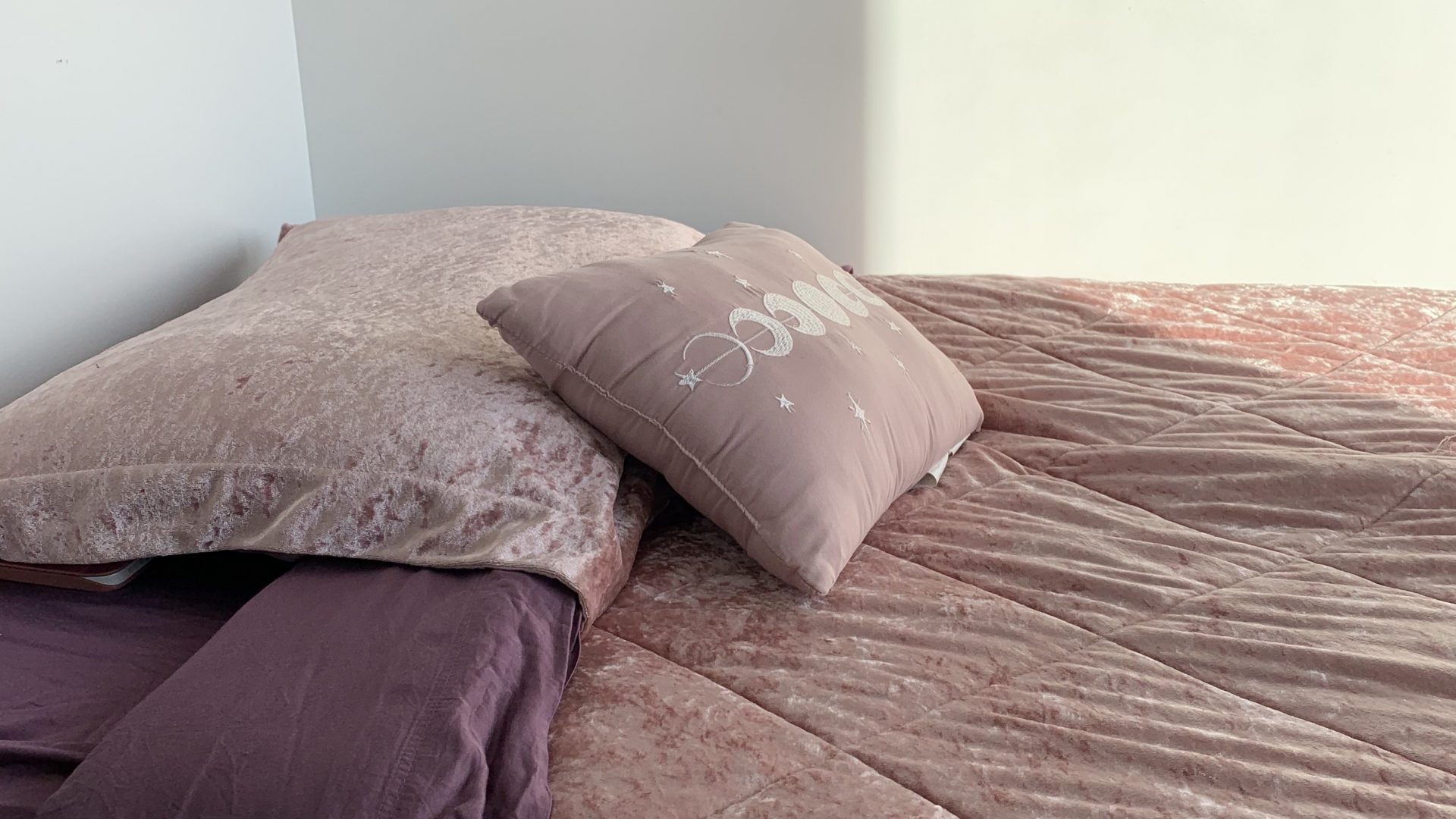Sleep problems are not novel, nor are they unique to university students. According to the Government of Canada, 50% of Canadians have trouble going to sleep or staying asleep. Twenty percent of Canadians do not find their sleep refreshing and 1 in 3 adults have trouble staying awake during waking hours.
If you're like me, getting a good night sleep––which often seems so simple––is as elusive and difficult as running a 10K marathon. Often, I find myself staying awake during the night and sleeping during the day, or taking naps throughout the day even after a full night of sleep. To say it's frustrating, is an understatement.
Admittedly, I am one of the 25% of university-aged students who struggle with sleep and aren't getting their full 7-9 hours of sleep per night. Thus, when I saw that the Health and Wellness program offers a monthly Sleep Well workshop, I jumped at the opportunity to attend January's session.

The Sleep Well event required registration through the Career Learning Network, through which I received a BB Collaborate link to join on the day of the presentation. Moderated by registered psychologist Dr. Kathleen Tallon and registered nurse Brenda Brouwer, they offered some helpful sleep tips that I've included below.
1. Rule Out An Underlying Health Condition
Poor sleep can be a result of your environment, but it can also be a result of the medications you're taking or an underlying health condition. Things like low iron, hyperthyroidism, breathing issues, chronic pain, high blood pressure and blood sugar can really impact your sleep. For this reason, it's important to speak with your physician and rule out any health-related causes.

2. Don't Sleep In...Even On Weekends
As someone who adores sleeping in, this will definitely be the most difficult goal to adapt after attending the Sleep Well workshop. However, it may also be the most rewarding part because it's been shown to boost your energy levels throughout the day.
Sadly, sleeping in is a really quick way to mess up your sleep cycle. The important goal should be to aim for a regular wake-up time and a general bedtime––seven days a week, not six, nor five, nor four.
3. Get Active During The Day
Exercise has been shown to significantly impact our sleep cycles. While it's not recommended to exercise 2-3 hours before sleep, it is important to move some way throughout your day. Thankfully, it doesn't have to mean a 90-minute workout each day––getting active can be as simple as going for a walk or doing some stretches.

4. Napping Isn't Inherently Bad...But Make Sure It's Not Disrupting Your Night Sleep
I'm a chronic napper. I struggle to survive a full day without a nap, which is a fact that I used to be ashamed of. Well, according to Tallon and Brouwer, taking a nap during the day isn't actually a problem, contrary to popular belief.
Naps are a vital component of many cultures all over the world, such as the Spanish siesta. However, if you're finding yourself getting groggy during the day, taking a walk and getting active are some good ways to increase your energy and stay awake longer––even without a nap!

0 comments on “How To Improve Your Sleep As A Student, According To The Sleep Well Workshop”